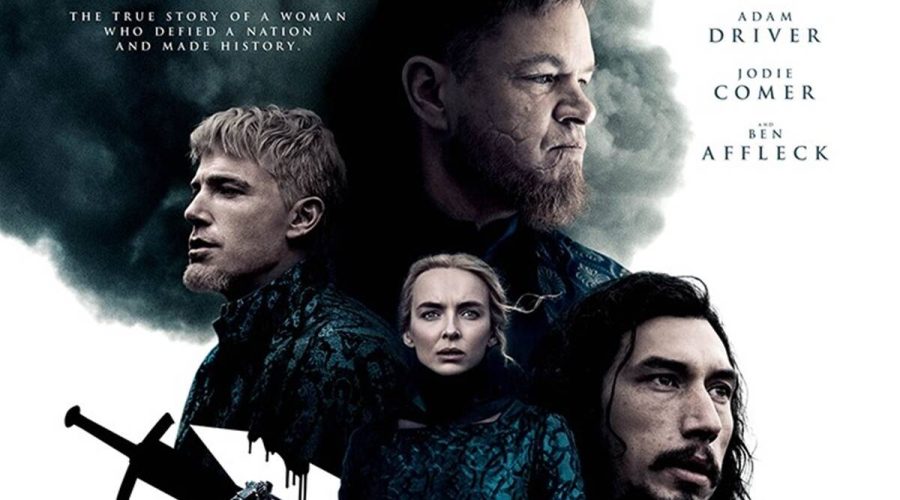Is “The Last Duel” the Last Straw for Ridley Scott?
February 25, 2022
Ridley Scott’s 27th movie “The Last Duel” is a thought-provoking and heart-lurching story based on a true story. Released in October of 2021, this drawn-out, two and half hour, period drama epic has earned a solid 85% on Rotten Tomatoes, showcasing the true and forlorn story of rape, rivalry, and scheming. This unique title takes the audience through the avenue of three different characters, the culprit for making the movie so long. But its colossal runtime is not wasted as there is a common motif of time itself dragging on, all to create the suspense the audience feels as we wait for the next character’s point of view.
“The Last Duel” takes place in 1300s France when the lives of kings, princes, and vassals ruled the lay of the land. The story begins with friendly competition between two squires to become the hand of a well-received Lord in rural France. We see the pitiful attempts to win the lord over from the friends, Jacques Le Gris (played by Adam Driver) and Jean de Carrouges (played by Matt Damon). But we see their friendship come to a halt as they quickly become enemies over Jean’s wife, Marguerite de Carrouges.
A rape accusation is suddenly called upon Gris by Marguerite while her husband was away doing business in Paris. Starting with Jean’s perspective, we see the events played out through the eyes of the main characters, eventually ending with the true story from Marguerite’s perspective. Marguerite is found guilty of lying and is to be brutally exploited and killed, but her husband proposes a fight to the death instead. The finale of the movie is the last duel between the two men as Marguerite watches on. With Jean winning, the movie fades to black and ends while offering some true facts about the characters’ futures.
However, this simple eye-catching period drama at first is actually a story of the horrible suffocation of Marguerite and her own story, feelings, and motivations. The ending of the movie shows this exceptionally well, as we see Marguerite’s feelings towards her husband and the duel for her own rights. For her tears during the duel are most definitely not for her husband, but for herself, and rightfully so. This is where the different perspectives make the movie so unique.
Every interaction of the two men with Marguerite is different while between the two men and themselves are the same. The men’s perspectives show them being chivalrous, patient, and suave, while Marguerite sees them as being rude, loud, impatient, and horribly insufferable.
The film makes a point to show how patriarchal the times were, even when addressing a crime that directly happened to a woman. The very act of Jean using a duel to the death takes away the importance of her feelings, showing how Jean really only wished to have the glory for himself. In the ending scene, Jean lifts his wife’s hand in celebration, as to row the crowd, showing how he only wants the glory, not to rightfully avenge his wife. He strides first into the crown on a black horse, celebrating his win, even kissing a woman’s baby to bless it.
Finally, the movie ends on a shot of Jean riding towards Notre Dame, with Marguerite following solemnly in the back. Marguerite was constantly pushed to the back of the trial and duel, suffocating her with hopelessness, all because of her position as a woman.











